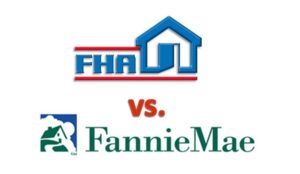 Appraisers, Underwriters, and Quality Control staff that are involved with the processing and/or review of Fannie Mae and HUD/FHA loan transactions need to be cognizant of the differences between Fannie Mae & FHA appraisal policies on various topics. Outlined below are five examples of these differences:
Appraisers, Underwriters, and Quality Control staff that are involved with the processing and/or review of Fannie Mae and HUD/FHA loan transactions need to be cognizant of the differences between Fannie Mae & FHA appraisal policies on various topics. Outlined below are five examples of these differences:
Using a previous appraisal on a subsequent refinance transaction
Fannie Mae will allow a previous appraisal to be utilized on a subsequent refinance transaction when one of the borrowers is buying out the other borrower. In this situation, the continuity of obligation (as defined in Fannie Mae’s Selling Guide (at B2-1.2-04) must be met for the appraisal to be utilized.
HUD/FHA, however, will always require a new appraisal (with a new FHA case number) whenever there is a subsequent refinance transaction on the subject property.
Utilities on and activated at the time of the appraisal
Fannie Mae does not require that the utilities that serve the subject property be turned on and activated at the time of the appraisal/inspection. However, a determination must be made that the utilities meet community/local standards.
HUD/FHA, however, requires that the utilities be turned on and tested by the appraiser during his/her on-site visit and, if the utilities are not activated, make the appraisal “subject to” the activation and testing of the utilities at some point prior to closing the loan transaction. A clear Inspection Report will then be required to document that the utilities were inspected and working properly before the loan can be insured.
Use of comparable sales that closed over twelve months ago
Fannie Mae allows appraisers to utilize comparable sales that closed more than 12 months ago provided that the appraiser can document that market conditions have impacted the availability of recent sales and adequately explains why such sales are being used.
Conversely, HUD/FHA policy prohibits appraisers from utilizing comparable sales data that is over one-year-old – for the first three comp sales (on the grid). It is acceptable, however, for an FHA Roster appraiser to utilize dated sales (over one-year-old) to help support the market value determination arrived at by the analysis of the first three sales. In rural and slow growth markets, FHA appraisers may include sales older than 12 months as additional sales in such markets.
Policy on properties that have a legal, non-conforming zoning designation
In HUD/FHA’s new Single Family Housing Policy Handbook (4000.1), it is stated that “if a property has a legal non-conforming zoning designation, the appraiser will be required to indicate whether or not the subject property can be legally rebuilt if destroyed”.
However, Fannie Mae’s policy requires a copy of the zoning regulations or a letter from the local zoning authority that authorizes reconstruction to current density only when the property being appraised is a condominium unit or a co-op share loan located in a project.
[poll id=”82″]
Finally, the listing of differences between Fannie Mae and HUD/FHA appraisal policies outlined above is certainly not an all-inclusive list.
In order to obtain additional and complete information on Fannie Mae appraisal policies – refer to both Fannie Mae’s Selling Guide as well as their Appraisers Page on their website (www.fanniemae.com/singlefamily).
Also, HUD/FHA appraisal policies can be obtained from the www.fha.gov website (click on the 4000.1 Handbook in the Search Box).
